
The Humane Society of Loudoun County (HSLC) will be at the Alamo Drafthouse at One Loudoun for The Garfield Movie.
While we can’t promise a lasagna-eating orange cat, we will be bringing a lovely assortment of adorable cats for you to meet. We’ll also be offering HSLC merch in support of our life-saving mission!
For times and tickets, visit the Alamo website.

By Joan Cassell
With the recent snowfall here in Loudoun County, this is a good opportunity to take a mid-season look at your pet’s cold weather needs. If you think about it, your pets have the same basic requirements that you do: shelter, safety, water and food. So, whatever you do for yourself in winter, your pets will probably need something similar.
Outdoor Time
Like people, dogs are susceptible to frostbite and hypothermia and should be kept inside when the temperature is below freezing. Although many pets have thicker fur during the winter months, it is a common misbelief that dogs and cats are more resistant to cold weather than people because of their fur.
Short periods of outside time is great for exercise and will keep your dog* from getting bored. If you have a pet with a short coat, there is no shortage of really adorable sweaters and jackets available. When selecting pet clothing, be sure it is safe, comfortable and made of non-toxic materials. Your fur baby should be able to walk, see, and hear clearly.
*The Humane Society of Loudoun County does not encourage allowing domestic cats outside unless they are leash trained or in a contained area like an enclosed porch.
Food and Water
Cold weather and heated homes, especially those without a humidifier, can make pets extra thirsty. So, keep your pets hydrated by ensuring their water bowl(s) are always full and readily accessible year-round. If you have outdoor water bowls, check them daily to make sure the water hasn’t frozen.
Keeping warm uses more calories, so even short periods of outdoor play may require more food intake. If exercise does not increase significantly then you can maintain your pet’s regular food intake. If you have special concerns, as always, talk to your veterinarian.
Hazards
Ice and chemicals on the roads and sidewalks can damage paws. So, it is a good idea to moisturize your dog’s paws with petroleum jelly before heading out. And, be sure to clean those paws and legs after being outside. This will keep your pet from consuming harmful chemicals when they clean themselves. You may also want to consider pet booties to minimize contact with painful or poisonous substances like salt and ice melt crystals.
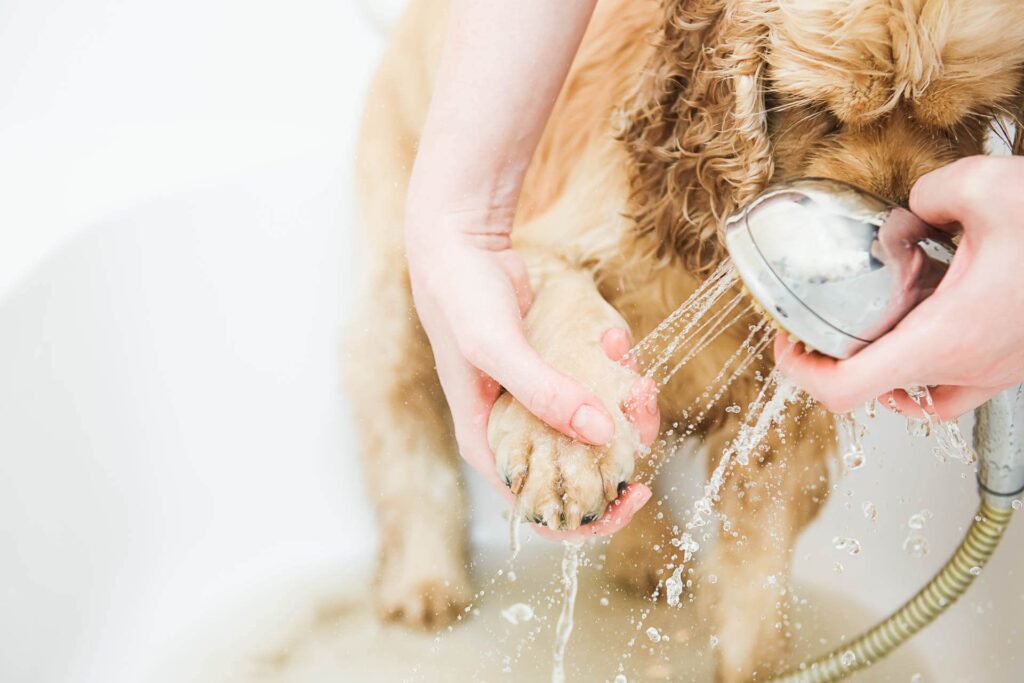
If your dogs are allowed to run off leash, always keep a very close eye on them to ensure they avoid frozen ponds, pools, lakes or other water sources. Unsupervised dogs may venture out onto a frozen area unaware of the dangers and get stuck in a bad situation. When in doubt, avoid these hazards altogether or keep your dog on a leash.
Lastly, notice your surroundings when you get ready to move your car. Sometimes stray and feral cats as well as other animals sleep in or under vehicles to stay warm. Before starting your car, honk the horn or bang on the hood to give any animals in or around your car a chance to escape.
Enjoy the outdoors with your pets for what is left of winter!
Looking for a cuddle buddy to snuggle with this winter? Consider fostering or adopting.
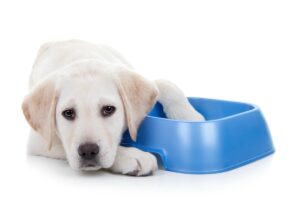
By Kathleen Silver
(Updated 2023)
The Humane Society of Loudoun County (HSLC) has adopted out over 140 dogs and cats so far this year — thanks to the support of caring individuals like you!
HSLC is an all-volunteer, non-profit organization committed to rescuing and caring for as many homeless and at-risk animals as possible. But, since each foster animal in our care costs an average of $1,000*, we are limited to the number of animals we can take in. Most of our donations are applied to veterinary costs to prepare a foster animal for their forever home or to trap-neuter-return our community cats.
Your Donations in Action
Did you know that with a donation of only $25, we can treat an animal for fleas and deworm her? A $50 gift will provide needed vaccinations or pet food kits for five struggling families. $100 will spay, vaccinate and microchip one community cat.
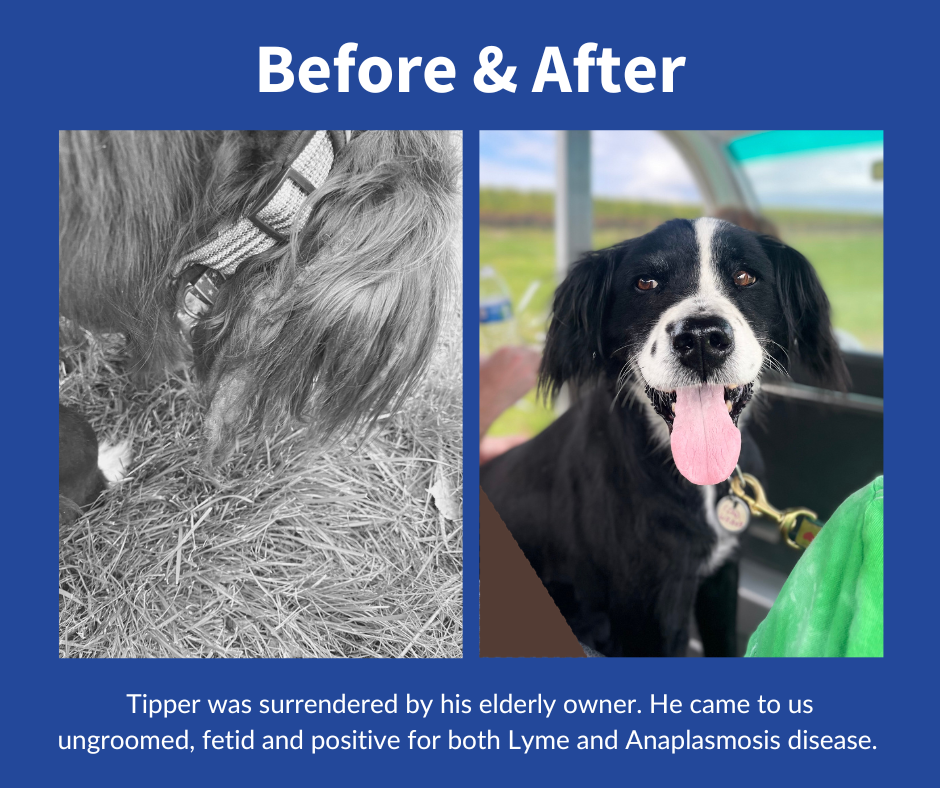
Perhaps you’ve been following a particular companion animal we are helping but cannot adopt yourself. HSLC also has a Guardian Angel program that allows you to sponsor that animal’s adoption fee ($150 for a cat and $300 for a dog), increasing their chances of being adopted. Adoption sponsorships help to defray the cost of care while an animal is in our foster network. And, if you don’t have your heart set on a particular animal, HSLC can easily choose a pet for you that needs the most help.
HSLC is a foster-based animal rescue that does not operate a shelter and therefore does not incur the expenses associated with running a facility.
Animals are Counting on You
With economic conditions being difficult this year, we know that money might be tighter than normal. But the calls to help our furry friends never stop. You can assist us in getting the push we need to help more animals in the new year.
There are many ways you can donate to HSLC. You can make a one-time donation or start a monthly donation online. Note that you can make your gift in honor or memory of a loved one. Or you can donate from your donor-advised fund — an increasingly popular way to express your support for the causes that mean most to you. Thank you for making a life-saving difference!
You may also like 4 Tax-Savvy Ways to Support HSLC Before Year-End.
*2022 figure; reflects discounts from our wonderful vet partners
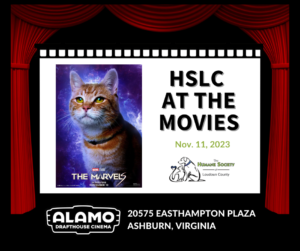
The Humane Society of Loudoun County (HSLC) will be at the Alamo Drafthouse at One Loudoun for The Marvels.
Any Marvel fan knows that Goose the “cat” steals every scene she’s in! So, we’ll be bringing some of our own scene-stealing kitties for you to meet. We’ll also be offering HSLC merch in support of our life-saving mission!
For times and tickets, visit the Alamo website.

By Lauren Puckett
You’re looking for a new kitten. After weeks of searching, you find not one, but two – an adorable pair of baby black panthers named Maui and Ohana. Both boys are quite friendly with a wonderful purr, and you can’t wait to bring them home. The only thing that gives you pause are the adoption fees: $150 per kitten.
However, once you look into it, you realize these fees are actually a pretty good deal. The Humane Society of Loudoun County (HSLC) is paying to neuter, microchip, and vaccinate these kittens. The costs for these required services vary:
- $115 to $210 for vaccinations (Daily Paws)
- $100 to $400+ for neutering (MetLife Pet Insurance)
- $45 for microchipping (Daily Paws)
But even at the low end of those ranges, it adds up to $260 per kitten. And that’s just for the healthy animals. For older, sick or injured animals, additional services–including surgery–may cost thousands. It’s no wonder that HSLC paid an average of $1,063 per foster animal in 2022. However, as a completely volunteer-run, foster-based organization, we do not incur expenses to operate or staff a physical location.
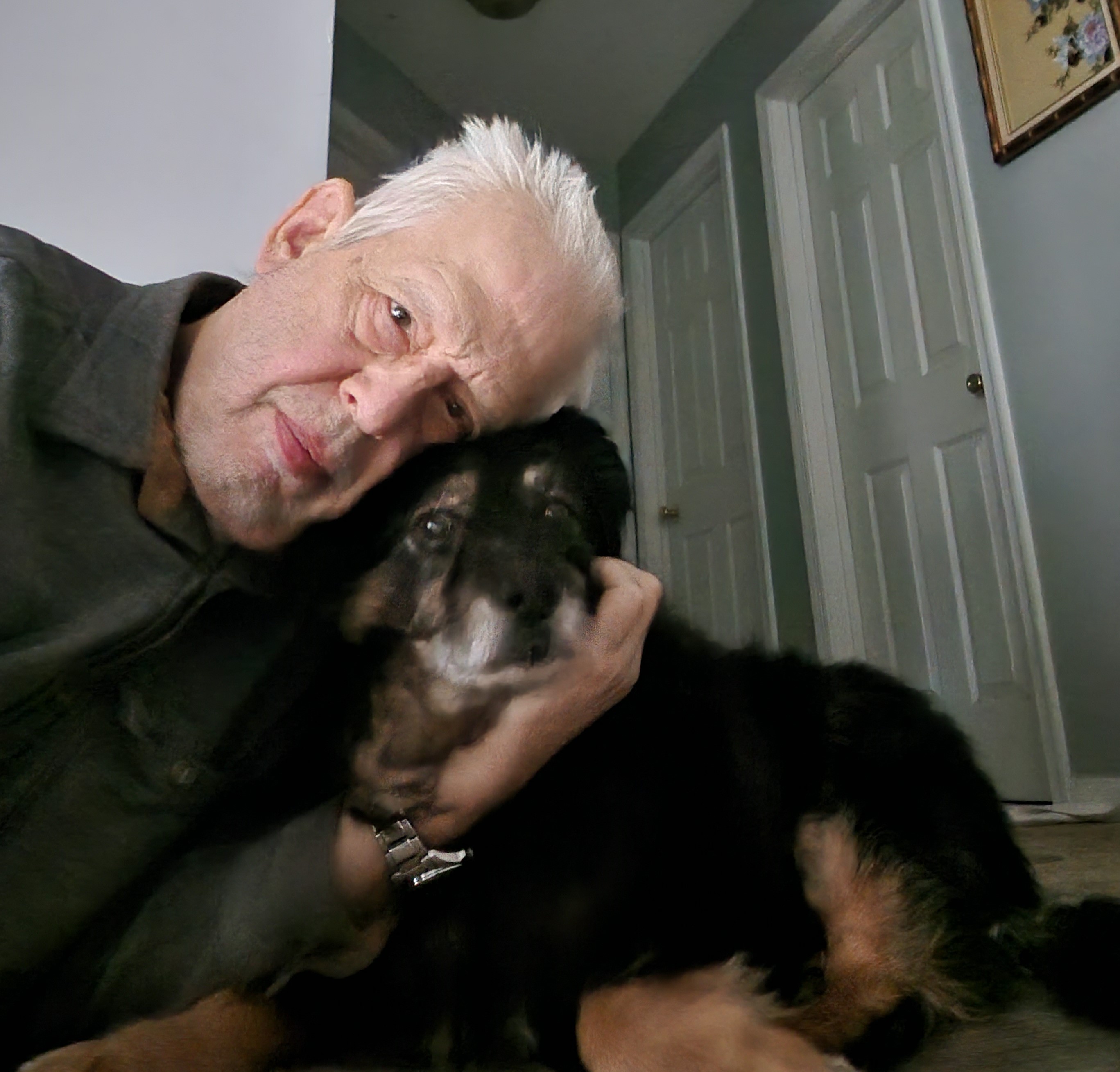
So, when you adopt from HSLC or other rescues, remember that the adoption fee is only covering a fraction of the actual expenses incurred. The remaining costs are covered by donations from caring individuals, businesses and foundations that support animal rescue.
Like other rescues, HSLC typically has higher adoption fees than local shelters because we do not receive funding from county, state or federal governments. HSLC’s adoption fees are on par with other non-profit rescues in the area.
Moreover, we’ve been able to keep our adoption fees – $150 per cat and $300 per dog – consistent for more than five years. This is due to the generosity of the community and because our veterinary partners continue to offer discounted services to HSLC even when faced with increasing costs.
To discover the many ways you can support HSLC’s life-saving mission, please visit our donate page. And, to adopt your next family member, visit our adoption page.
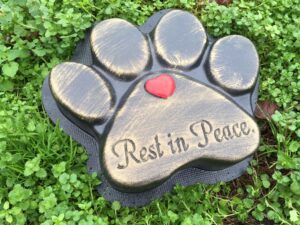
By Lauren Puckett
For most of us, losing a pet is like losing a member of the family. The sense of loss can be profound. As you go through the stages of grief, here are four ways to help you cope with the loss of your beloved companion.
1. Acknowledge your grief
It’s important to be open to your emotions, rather than ignoring them. Don’t try to “be strong” or push your sad thoughts aside. Rather, allow yourself to cry and acknowledge the loss. Work through your feelings and embrace the memories of your beloved pet. Don’t question your grief or compare it to the experience of losing a friend or relative. The American Veterinary Medical Association explains, “Your grief is normal, and the relationship you shared with your special friend needs to be mourned.”
2. Reach out to others
Seek support from your family and friends, especially those who have lost a pet themselves. You may also want to consult with your doctor or therapist. Additionally, the Humane Society of the United States recommends these resources for coping with the loss of a pet:
- The Pet Compassion Careline, which provides 24/7 support with trained grief counselors
- Lap of Love, which provides grief courses and pet loss support groups
- Everlife Support Groups, a directory of pet loss support groups by state
3. Maintain your routine
During a difficult time, you may not feel like eating or sleeping, but it’s important to take care of yourself. “Letting yourself get run down physically can make you feel worse emotionally,” explains ASPCA Pet Insurance. Maintaining your normal routine will help. If you have other pets, this is especially important for their well-being, too. Make sure to feed and walk them as usual.

4. Memorialize your pet
Do something to remember your pet, such as holding a funeral. HelpGuide.org notes, “A funeral can help you and your family members openly express your feelings. Ignore people who think it’s inappropriate to hold a funeral for a pet, and do what feels right for you.” Other ideas to memorialize your pet include:
- Spread your pet’s ashes or keep them in a special place in your home.
- Incorporate your pet’s ashes into pet cremation jewelry (try Spirit Pieces or Perfect Memorials).
- Plant a tree or shrub in honor of your pet. You can even have a memorial stone engraved and place it at the base.
- Create a memory box with your pet’s collar or favorite things.
- Share photos and memories online via social media or a specialized website (the Association for Pet Loss and Bereavement allows you to create one).
- Write a letter to your pet or the story of your last days together.
For immediate support, contact the Cornell University College of Veterinary Medicine’s Pet Loss Support Hotline at 607-218-7457, Monday through Friday, 6-9 p.m. EST and Saturday and Sunday, 12-9 pm EST.

Get ready for the 5th year of One Loudoun’s signature pet event event! The Halloween Bark Bash at One Loudoun is an outdoor, Halloween-themed festival, bringing together local pet-focused businesses, animal rescue groups, and pet owners for an exciting day of trick or treating, adoptable dogs, music, costumes, and animals galore.
The Humane Society of Loudoun County is honored to be selected again as this year’s Kite Cares partner!

The Humane Society of Loudoun County (HSLC) will be at the Alamo Drafthouse at One Loudoun for Paw Patrol: The Mighty Movie (see premise below), the sequel to Paw Patrol: The Movie. Come early and stop by the HSLC tables for free giveaways for the kids, HSLC merch for the adults and animals for adoption!
For times and tickets, visit the Alamo website.
Premise: When a magical meteor crash-lands in Adventure City, it gives the PAW Patrol pups superpowers, transforming them into The MIGHTY PUPS! For Skye, the smallest member of the team, her new powers are a dream come true. But things take a turn for the worse when the pups’ arch-rival Humdinger breaks out of prison and teams up with a mad scientist to steal the superpowers for the two villains. With the fate of Adventure City hanging in the balance, the Mighty Pups have to stop the supervillains before it’s too late, and Skye will need to learn that even the smallest pup can make the biggest difference.

By Heather Nokes
Did you know that dogs and cats do not sweat like humans? Their main sweat glands are located on their paw pads and are not very effective at cooling them off. With summer now upon us, it is important to understand how hot weather affects our pets and how we can help them stay cool.
First, keep your pets out of the heat. This may be difficult for dogs. Most love the outdoors so much, they may not ask to come inside, even when in distress. If unable to keep them in an air conditioned environment, be sure to provide cool shade or shelter for your pets. Clean, cool water should always be accessible to pets that spend time outdoors during summer months. Note that, effective July 1, 2020, a new Virginia law went into effect preventing tethering outside during extreme weather.
 Take your dog on walks at dusk or dawn, when it is light enough to be seen by others, but still cool enough for a walk. Check the pavement you are walking on with the back of your hand. If your hand burns after a few seconds of contact, so will your dog’s foot. If it is too hot for you, it is much too hot for your pet.
Take your dog on walks at dusk or dawn, when it is light enough to be seen by others, but still cool enough for a walk. Check the pavement you are walking on with the back of your hand. If your hand burns after a few seconds of contact, so will your dog’s foot. If it is too hot for you, it is much too hot for your pet.
To cool down, dogs will often pant to rid themselves of excess body heat. Panting is normal for most dogs but be aware of the signs of abnormal panting. Cats tolerate hot weather a little better than dogs but can suffer from heat stroke. They often choose lying in cooler areas, drinking cool water, and adjusting their body positions.
If you notice your pet is overheating, gradually reduce their body temperature. Use ice packs, cold towels, or apply cool (not cold) water to the head, neck and chest, let your pet drink small amounts of cool water or lick ice cubes and move the pet into shade or air-conditioning. NEVER try to quickly cool a pet by dunking them in cold water. This can drop their body temperature too quickly and send them into shock.
Contact your vet immediately if your pet shows any of the following signs:
- Heavy panting
- Glazed eyes
- Rapid pulse
- Vomiting
- Fever (the normal range in dogs is 101-102 degrees, cats is 99.5-102.5 degrees)
- Unsteadiness or a staggering gait
- A deep red or purple tongue
Lastly, never leave pets in a parked car. Even on cool days, such as 70 degrees, a car’s internal temperature will jump to 90 degrees in 10 minutes and over 110 degrees within an hour. At 85 degrees, the car will reach 102 degrees in 10 minutes, continuing higher with more time. On 90 degree days, the car will quickly escalate to over 110 degrees. Cracking windows does not prevent a car from getting dangerously hot, even in cool temperatures.
For additional information on keeping your pets safe and comfortable during warm weather, please click on the following link: AMVA Warm weather pet safety

Stop by the Humane Society of Loudoun County‘s tent while shopping at the Leesburg Farmers Market on Saturday, October 14, and enter our free raffle!
Please bring adult dog and cat food (unopened, unexpired and non-prescription) to donate to the Loudoun Pet Pantry. The pantry collects pet food to help keep companion animals in their loving homes during difficult times. In 2022, the pantry provided over 24,000 pounds of pet food to struggling families in Loudoun County. HSLC will also be collecting monetary donations to help the at-risk and homeless animals in our community.
